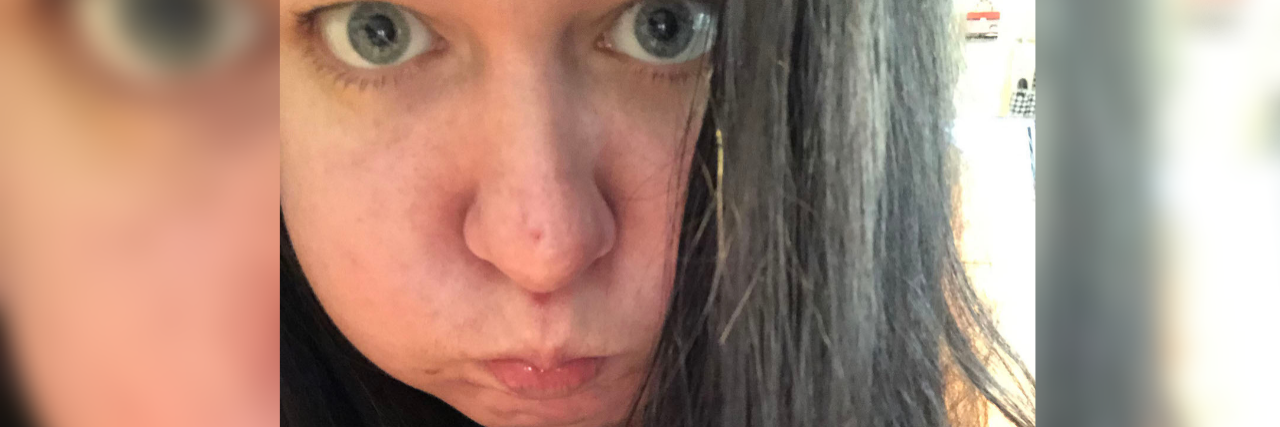We have come so far as a society in human rights and the acceptance of others. I have been lucky enough to see gay people allowed the right to marry, and for our country to have our first black president.
Of course we still have a ways to go on these issues, but from what I’ve seen, there is always one issue that falls to the wayside. Maybe we aren’t there yet as a society, maybe we don’t think it’s important enough — but it should matter. I’m talking about mental illness. In this case specifically, borderline personality disorder (BPD).
In the DSM-V, there are hundreds of diagnoses and disorders, but this one, it seems, can label you for life. Getting a BPD diagnosis is like wearing a sign that says, “Kick me.” In my experience, it’s one of the most stigmatized disorders out there. And the worst part is, the people who are supposed to help treat us — who are supposed to know better than what society says — are often the people stigmatizing and judging us just for being labeled borderline.
In a society that has come so far, how can we have misstepped so far to the left? To make human beings feel worse than they already do?
I’ve heard people with BPD labeled by society as drama queens, crazy or irrational. I’ve heard them talk about us like we’re “insane,” and that you should stay away from us because we can tear you apart one minute and love you the next. Because of words like these, people with BPD have been shamed into hiding their true nature from people, afraid to open up.
I can tell you this is true, because I’m going to be brave and tell you — I have BPD. I used to be so proud of my BPD, but society has made me ashamed. I have lost friends and potential friends because of it. Just this week in my psych class, my professor was talking about BPD and mentioning the movie “Fatal Attraction” as an example of the disorder. I had to walk out in anger. When I came back she was telling a story of a patient whose mother had borderline, throwing around the word “crazy” and “crazies,” saying to stay away from them. Convincing the class that all “borderlines” will completely tear you in two. I was too afraid to say something after class, in shame that a classmate would hear that I had BPD. So, the next day, as politely as I could, I emailed her about how I felt and how this stigma needs to end. I even told her I was borderline, just so she would know. She emailed back and was sorry. She said that she would rectify this next class. Score one for #endstigma.
As I said earlier, it’s not just from society. It can also come from the people meant to help you get better, from psychologists, psych nurses and other staff in psychiatric settings. It’s one thing when society is stigmatizing you, but it’s another when you’re trying to get help, only to be met with preconceived judgments based on your mental illness.
“Borderline Personality Disorder (BPD) remains one of the field’s most misunderstood, misdiagnosed and stigmatized conditions. Studies show that even some mental health professionals have more stigmatizing views about BPD than any other mental health condition: As some choose to limit the amount of BPD patients they’re ‘willing’ to see or refuse to treat people with BPD altogether.” — “Borderline personality disorder, stigma, and treatment implications“
My old therapist once told me BPD was the diagnosis they gave to “difficult” patients. I then of course asked her if I was difficult. She said no. I have yet to meet anyone who refused to treat me, but I have heard stories. Often times, “Patients with BPD are seen as ‘treatment resistant,’ ‘manipulative,’ ‘demanding,’ ‘drama queens’ and ‘attention-seekers.’ And therefore by many clinicians, frequently labeled as ‘treatment resistant’ and dropped as patients.”
This stigma towards people with BPD creates a cycle. We behave in a way that is not deemed “OK” by anyone’s standards, then are shamed for it, so we try to get help, only to be treated as a label. Then, hurt, we react in the way society has deemed wrong. And so goes the cycle. If only society and mental health professionals saw us for who we were. Saw that we too are in pain. That we too need help. That these behaviors are not always in our control. That we are people too, just like you. We just work a little differently.
To the world we may be the “difficult” patient, but let me tell you something I’ve learned in having this mental illness. I can feel more intensely than most people, feel in all the colors of the world. I can love with all my heart, even as it breaks. I have a sense of loyalty that is unfounded. I take risks people are afraid of, like finding love because I see in black and white and I live in extremes. I love passionately and write passionately and create art passionately because I am a passionate person. To be able to live by emotions, have my life be guided by emotions, can be a curse sometimes, but I wouldn’t trade it for the world. I see all the beauty in it that most people miss. I see the little things others tend to overlook because I feel so much and see so much. Borderline personality disorder is a mental illness, but to me, it’s also a superpower. It’s not a bad thing. It’s just who I am.
Getty image via Deepak Sethi

